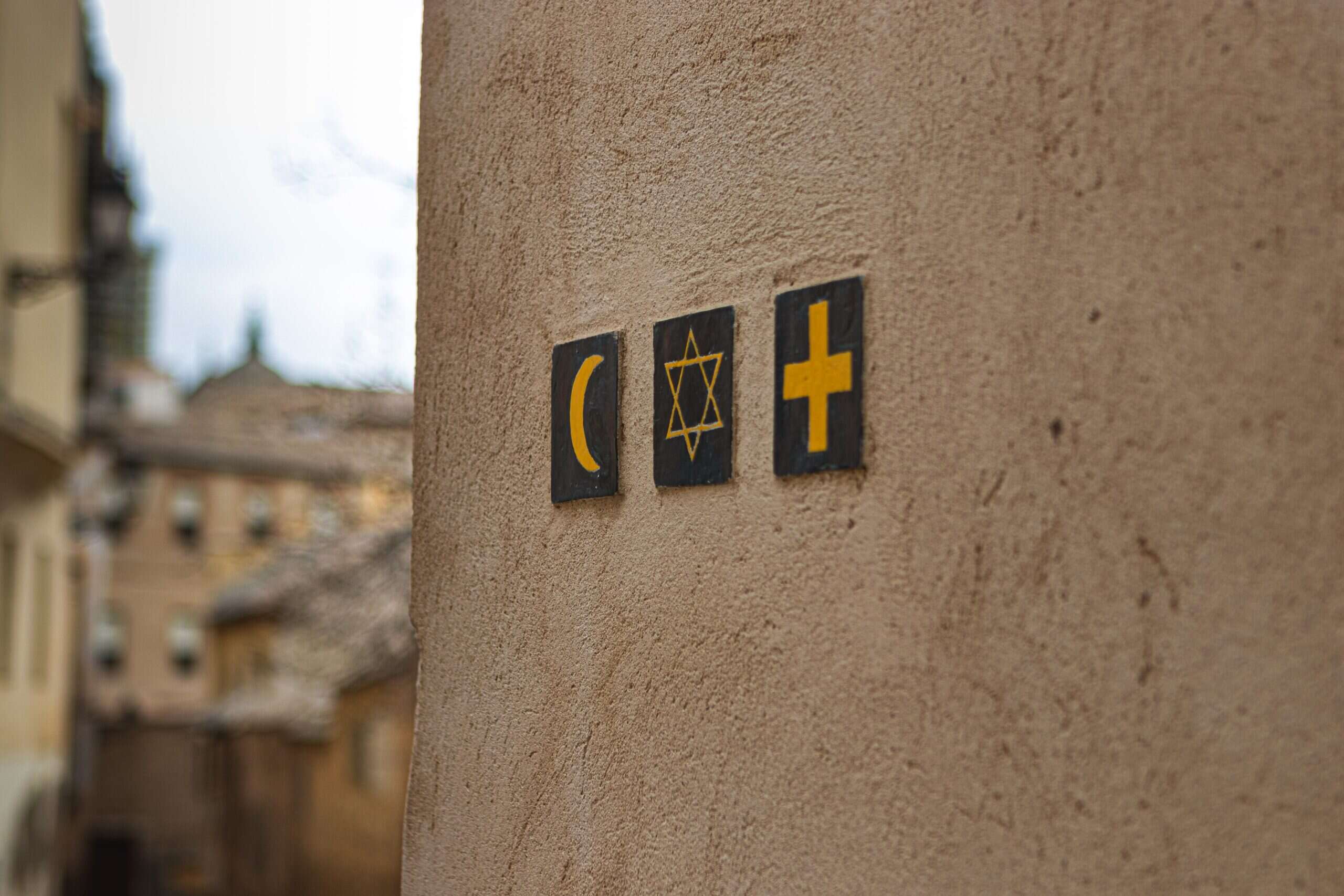
Interfaith dialogue is a powerful tool for fostering understanding and peace among diverse religious communities. But what exactly is it? Interfaith dialogue involves open and respectful communication between people of different faiths. Its goal is not to convert but to learn, share, and build bridges. This practice can help break down stereotypes, reduce prejudice, and promote mutual respect. Whether you're curious about its benefits, history, or how to get involved, this article will provide you with 24 intriguing facts about interfaith dialogue. Ready to broaden your horizons and deepen your understanding of different faiths? Let's dive in!
What is Interfaith Dialogue?
Interfaith dialogue involves open and respectful communication between people of different religious traditions. It aims to foster understanding, reduce conflict, and promote peace.
- Interfaith dialogue encourages mutual respect and understanding among diverse religious communities.
- It often involves discussions on shared values and common goals.
- Participants aim to learn about each other's beliefs without trying to convert one another.
- Such dialogues can take place in various settings, including schools, community centers, and places of worship.
Historical Background of Interfaith Dialogue
Understanding the history of interfaith dialogue helps appreciate its significance today. This practice has roots in ancient times but has evolved significantly over the centuries.
- The concept dates back to ancient civilizations like Greece and India, where philosophers engaged in religious discussions.
- In medieval Spain, Muslims, Christians, and Jews coexisted and exchanged ideas in a period known as La Convivencia.
- The Parliament of the World's Religions, held in 1893 in Chicago, marked a significant modern milestone.
- Post-World War II, interfaith dialogue gained momentum as a means to promote global peace.
Benefits of Interfaith Dialogue
Engaging in interfaith dialogue offers numerous benefits, both for individuals and communities. These dialogues can lead to personal growth and societal harmony.
- It helps break down stereotypes and prejudices.
- Participants often develop a deeper understanding of their own faith.
- Communities become more cohesive and inclusive.
- It can lead to collaborative efforts in addressing social issues like poverty and injustice.
Challenges in Interfaith Dialogue
Despite its benefits, interfaith dialogue faces several challenges. Recognizing these obstacles is crucial for making the dialogue more effective.
- Language barriers can hinder effective communication.
- Deep-seated prejudices and historical conflicts may resurface.
- Some participants may feel threatened or defensive about their beliefs.
- Power imbalances between different religious groups can affect the dialogue's dynamics.
Successful Examples of Interfaith Dialogue
There are numerous successful examples of interfaith dialogue worldwide. These examples demonstrate the potential for positive outcomes when people come together.
- The Interfaith Youth Core in the United States promotes understanding among young people from different faiths.
- The United Religions Initiative connects grassroots interfaith groups globally.
- In India, the Sarva Dharma Sansad brings together leaders from various religions to discuss common issues.
- The Council for a Parliament of the World's Religions continues to organize global interfaith events.
Future of Interfaith Dialogue
The future of interfaith dialogue looks promising, with increasing interest and participation from various sectors of society. Innovations and new approaches are likely to shape its evolution.
- Technology, like social media and virtual meetings, is expanding the reach of interfaith dialogue.
- Educational institutions are incorporating interfaith studies into their curricula.
- Governments and international organizations are recognizing the importance of interfaith dialogue in peacebuilding.
- Younger generations are showing a growing interest in interfaith initiatives, ensuring its continuity.
The Power of Interfaith Dialogue
Interfaith dialogue builds bridges. It fosters understanding among diverse communities. By engaging in these conversations, people learn about different beliefs, practices, and values. This mutual respect can reduce prejudice and conflict. It also promotes peace and cooperation.
Moreover, interfaith dialogue encourages personal growth. Participants often gain a deeper understanding of their own faith. They also develop empathy and open-mindedness. These qualities are essential in our interconnected world.
Communities benefit too. Interfaith initiatives can address social issues like poverty and injustice. By working together, different faith groups can create positive change. This collaboration strengthens the social fabric.
In short, interfaith dialogue is a powerful tool. It unites people, promotes peace, and drives social progress. Embracing these conversations can lead to a more harmonious and just world. So, let's keep talking and learning from one another.
Was this page helpful?
Our commitment to delivering trustworthy and engaging content is at the heart of what we do. Each fact on our site is contributed by real users like you, bringing a wealth of diverse insights and information. To ensure the highest standards of accuracy and reliability, our dedicated editors meticulously review each submission. This process guarantees that the facts we share are not only fascinating but also credible. Trust in our commitment to quality and authenticity as you explore and learn with us.


